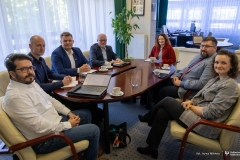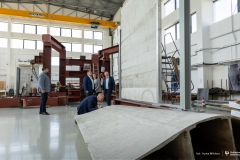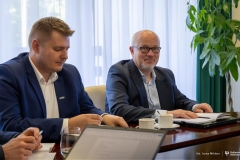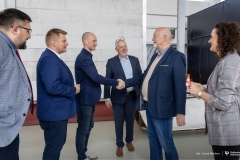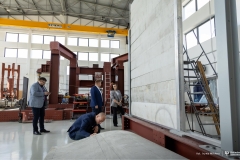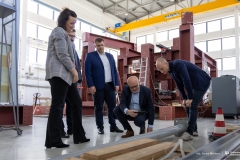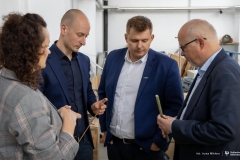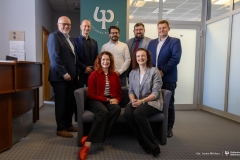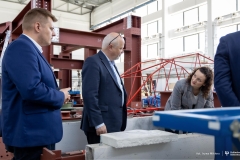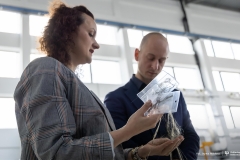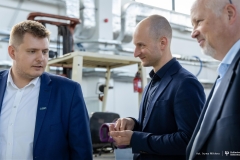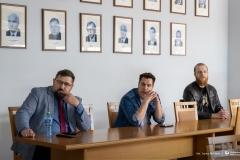Bialystok University of Technology expands cooperation with TU Dresden under the GreenCompas initiative
15-05-2025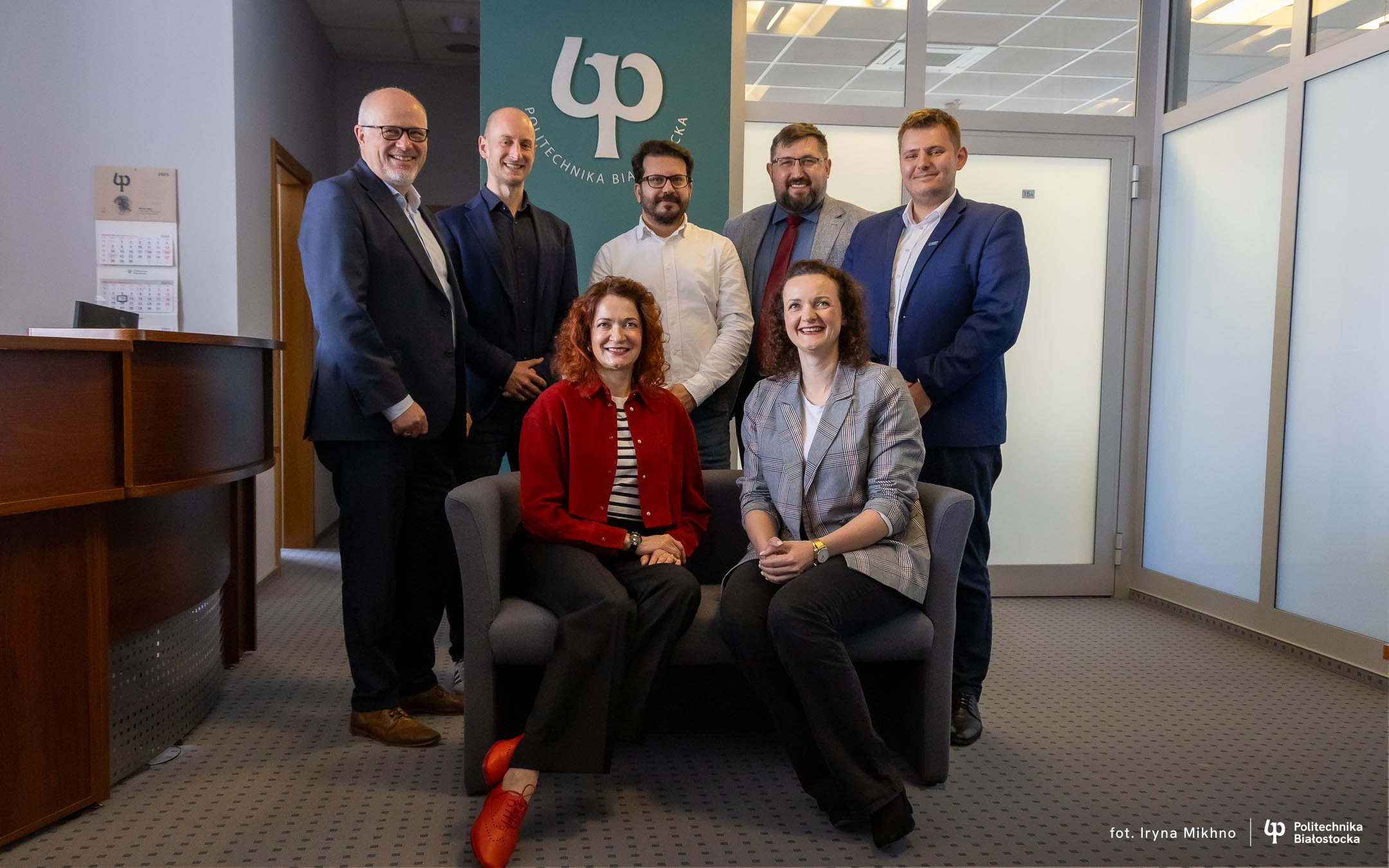
The meeting included a discussion on Bialystok University of Technology’s engagement in the GreenCompas project, funded under the BMBF programme (FKZ: 01DS24004), which focuses on building strong regional research consortia in Eastern and South-Eastern Europe.
The collaboration between BUT and TU Dresden is set to include:
- joint research on lightweight composite materials,
- development of composite damage models,
- analysis of coupled processes in forming technologies,
- organisation of joint summer schools, exchange of staff and PhD students,
- joint funding applications under Horizon Europe, CORNET, and bilateral initiatives.
The meeting on 13 May 2025 was attended by:
- Assoc. Prof. Marta Kosior-Kazberuk, DSc, PhD, Eng – Rector of Bialystok University of Technology
- Dr Albert Langkamp – ILK TU Dresden
- Lars Muschalski – ILK TU Dresden
- Rafał Stanik – ILK TU Dresden
- Assoc. Prof. Dariusz M. Perkowski, DSc, PhD, Eng – Department of Mechanics and Applied Computer Science, Faculty of Mechanical Engineering, Bialystok University of Technology
- Julita Krassowska, PhD, Eng – Department of Building Structures and Structural Mechanics, Faculty of Civil Engineering and Environmental Sciences, Bialystok University of Technology
As part of the visit, a scientific seminar was held at the Faculty of Mechanical Engineering of Bialystok University of Technology, during which experts from TU Dresden presented the latest research achievements in the design and modelling of next-generation composites. The seminar gathered numerous researchers, doctoral students, and students.
The visit also included a meeting with the authorities of the Faculty of Mechanical Engineering – Dean Prof. Michał Kuciej, DSc, PhD, Eng, and Vice-Dean for Student Affairs and Education Adam Bajkowski, PhD, Eng. The discussions focused on the potential for joint scientific and educational projects, development of cotutelle doctoral programmes, and the exchange of students and early-career researchers under European and bilateral academic mobility initiatives.
The joint activities of BUT and TU Dresden are aligned with the University’s internationalisation strategy and the development of applied research addressing the needs of modern industry.
by dp
